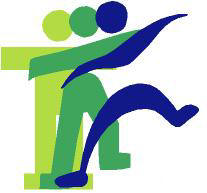 Cidar
Health Care LLC
Cidar
Health Care LLCChemicals
+ Information
= Drugs
+ Algorithms
= Results
What We Are Reading
Modern Drug Development combines the skills of many disciplines. Our reading list shows both mainstream titles and more advanced topics
Data Management and Data Mining
 |
Advances in Knowledge Discovery and Data Mining by Usama M. Fayyad, Gregory Piatetsky-Shapiro, Padhraic Smyth, Ramasamy Uthurusamy Brings together the latest research -- in statistics, databases, machine learning, and artificial intelligence -- that are part of the exciting and rapidly growing field of Knowledge Discovery and Data Mining. Topics covered include fundamental issues, classification and clustering, trend and deviation analysis, dependency modeling, integrated discovery systems, next generation database systems, and application case studies. |
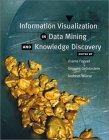 |
Information Visualization in Data Mining and Knowledge
Discovery by Usama Fayyad, Georges Grinstein, Andreas Wierse It is also the first book to explore the fertile ground of uniting data mining and data visualization principles in a new set of knowledge discovery techniques. Leading researchers from the fields of data mining, data visualization, and statistics present findings organized around topics introduced in two recent international knowledge discovery and data mining workshops. |
Biostatistics
 |
Statistical Issues in Drug Development by Stephen Senn The book has been prepared in two sections. The first section considers the role of statistics in drug development from four different perspectives: historical, philosophical, technical and professional. The second section covers a series of controversial topics such as fixed versus random effects for meta-analysis, one-sided versus two-sided tests and the ethics of placebo run-ins. The approachable and wide-ranging coverage of this book will make it invaluable to all those working in drug development and regulation. |
 |
Bayesian Approaches to Clinical Trials and Health-Care Evaluation
by David J. Spiegelhalter, Keith R. Abrams, Jonathan P. Myles Bayesian methods have become increasingly popular in recent years, notably in medical research, and although there are a number of books on Bayesian analysis, few cover clinical trials and biostatistical applications in any detail. Bayesian Approaches to Clinical Trials and Health-Care Evaluation provides a valuable overview of this rapidly evolving field, including basic Bayesian ideas, prior distributions, clinical trials, observational studies, evidence synthesis and cost-effectiveness analysis. |
 |
Probabilistic Networks and Expert Systems by Robert G. Cowell, Steffen L. Lauritzen, David J. Spiegelhalter Building on original research by the authors over a number of years, this book gives a thorough and rigorous mathematical treatment of the underlying ideas, structures, and algorithms, emphasizing those cases in which exact answers are obtainable. It covers both the updating of probabilistic uncertainty in the light of new evidence, and statistical inference, about unknown probabilities or unknown model structure, in the light of new data. |
 |
Graphical Models by Steffen L. Lauritzen The use of graphical models in statistics has increased considerably over recent years and the theory has been greatly developed and extended. This book provides the first comprehensive and authoritative account of the theory of graphical models and is written by a leading expert in the field. |
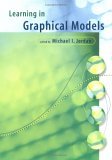 |
Learning in Graphical Models by Michael I. Jordan This book presents an in-depth exploration of issues related to learning within the graphical model formalism. Four chapters are tutorial chapters--Robert Cowell on Inference for Bayesian Networks, David MacKay on Monte Carlo Methods, Michael I. Jordan et al. on Variational Methods, and David Heckerman on Learning with Bayesian Networks. |
Information Management
 |
Document Strategy Design Workbook The book describes a five-phase process that will guide readers through the design of document strategy tailored to their particular situations. Cause-effect diagrams, flow charts, and return on investment are presented in easy to understand terms. |
Search and Retrieval
 |
Foundations of Statistical Natural Language Processing
by Christopher D. Manning, Hinrich Schütze Statistical approaches to processing natural language text have become dominant in recent years. This foundational text is the first comprehensive introduction to statistical natural language processing (NLP) to appear. The book contains all the theory and algorithms needed for building NLP tools. |
Knowledge Management
 |
If Only We Knew What We Know: The Transfer of Internal Knowledge and Best Practice by Carla O'dell, C. Jackson Grayson Internal best practices, discussing the barriers to internal knowledge transfer and offering detailed recommendations for overcoming these barriers. Of particular value is their Knowledge Management Assessment Tool |
 |
Harvard Business Review on Knowledge Management by Peter Ferdinand Drucker, David Garvin, Dorothy Leonard, Susan Straus, John Seely Brown This book is a compilation of articles excerpted from the Harvard Business Review covering a period from 1988-1997 - and they still hold true in today's companies. The articles focus on the way organizations can acquire, use, and maintain knowledge in order to remain on the cutting edge of their fields. The key message of this book by Peter F. Drucker: "... future organizations must take advantage of technology to collect and track data so that data can be translated into useful information." |
Modeling and Simulation
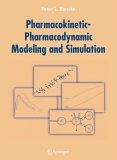 |
Pharmacokinetic-Pharmacodynamic Modeling and Simulation
by Peter Bonate A natural hierarchy exists in pharmacokinetic-pharmacodynamic modeling culminating in population pharmacokinetic models, which are a specific type of nonlinear mixed effects model. The purpose of this book is to present through theory and example how to develop pharmacokinetic models, both at an individual and population level. |
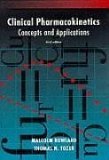 |
Clinical Pharmacokinetics: Concepts and Applications
by Malcolm Rowland, Thomas N. Tozer Third edition of a textbook for pharmacy students on the application of pharmacokinetics to the therapeutic management of patients. |
Decision Support and Portfolio Management
 |
Portfolio Management for New Products by Robert G. Cooper, Scott J. Edgett, Elko J. Kleinschmidt A solid introduction to approaches of portfolio management and applicable to almost any industry. It gives an historic background, examples of what works and what doesn't work, how to align the project/product portfolio with core competencies, how to realign R&D operations and more. If your company is using a Stage Gate product development process, this book will be a great addition as the portfolio review approach links right into the stage gates. |
 |
Designing Clinical Research by Stephen B Hulley, Steven R Cummings, Warren S Browner, Deborah Grady, Norman Hearst Univ. of California, San Francisco. Practical guide to planning and implementing clinical research, providing physicians and clinical investigators complete descriptions of key components. Emphasizes common sense as the main ingredient of good science. |
 |
The Development Factory: Unlocking the Potential of Process
Innovation by Gary P. Pisano In this multi-year study of pharmaceutical and biotechnology firms, Gary Pisano explores the dynamics of superior product and process development in a highly competitive industry that lives and dies by its R&D and depends heavily on rapid time to market. |
Knowledge Turnover
 |
The Structure of Scientific Revolutions by Thomas S. Kuhn The Structure of Scientific Revolutions is indeed a paradigmatic work in the history of science. Kuhn's use of terms such as "paradigm shift" and "normal science," his ideas of how scientists move from disdain through doubt to acceptance of a new theory, his stress on social and psychological factors in science--all have had profound effects on historians, scientists, philosophers, critics, writers, business gurus, and even the cartoonist in the street. |
Project Management
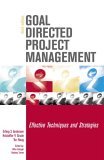 |
Goal Directed Project Management by Erling S Andersen, Kristoffer V Grude, Tor Haug A wonderful must read for every project manager. Goal Directed Project Management (GDPM) is a management philosophy and a set of tools and principles for planning, organizing, leading and controlling projects. The method is characterized by its practical and “psychological” approach to both focusing a project group to reach common goals and on controlling the progress of each individual. GDPM is simple: Why! Project definition, What! Deliverables; How! Activities. |
 |
Managing to Have Fun by Matt Weinstein We spend a lot of time working, why not make it fun? This is a wonderful book with many practical ideas how to make work more fun. There are even 52 examples (one for each week of the year) of ideas for adding fun. One of my favorites was paying the toll for the person behind you at the toll booth, and lingering behind to see the expression on the person's face when they catch up to you on the road. |
Related resources
- Amazon.com